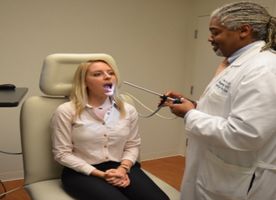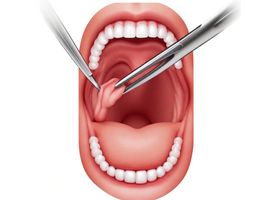Ear, Nose and Throat (ENT) in South Africa
Search and Compare the Best Clinics and Doctors at the Lowest Prices for Ear, Nose and Throat (ENT) in South Africa
Dr Pedro Monteiro - ENT and Skull Base Surgeon

Ear, Nose and Throat (ENT) at Dr Pedro Monteiro - ENT and Skull Base Surgeon in Cape Town, South Africa
UCT Private Academic Hospital





Ear, Nose and Throat (ENT) at UCT Private Academic Hospital in Cape Town, South Africa
Netcare N1 City Hospital
Ahmed Kathrada Private Hospital





Ear, Nose and Throat (ENT) at Ahmed Kathrada Private Hospital in Johannesburg, South Africa
Dr Brian Wolfowitz
Our partner clinics in South Africa are accredited by the following associations















































































































































No Time?
Tell us what you're looking for and we'll reach out to the top clinics all at once
WHY US?















































































































































No Time?
Tell us what you're looking for and we'll reach out to the top clinics all at once


Ear, nose, and throat, ENT for short or Otolaryngology, is a medical specialty that focuses on the care and treatment of the ears, nose, and throat. Physicians who specialized in ENT are called otolaryngologists or ENT doctors and are qualified and trained in both the medical and surgical management of the following conditions:
- Conditions of the ear – ENT doctors can help with ear disorders or other issues, such as ear infections, hearing impairment, ear noise (tinnitus), balance disorders, nerve pain, as well as facial and cranial nerve disorders. They can also manage congenital disorders (disorders that are present since birth) of the inner and outer ear.
- Conditions of the nose – one of the primary skills of ENT doctors in the care of the nose, nasal cavity, and sinuses. They can diagnose, treat, and manage allergies, deviated septum, smell disorders, sinusitis, polyps, and nasal obstruction because of a deviated septum. They can also perform rhinoplasty surgery to correct the appearance of the nose.
- Conditions of the throat – disorders, and conditions that affect the throat, larynx (voice box), and the esophagus or upper aero-digestive tract can be diagnosed and treated by ENT doctors, including voice and swallowing disorders.
- ENT-related conditions of the head and neck – ENT doctors are trained to treat infectious diseases, tumors, trauma, and deformities of the head, face, and neck. They can also manage problems with the nerves in these areas that control smelling, sight, hearing, and facial movements. In addition, they can perform cosmetic and reconstructive surgery to the head and neck area.
The procedures that ENT doctors perform include, but are not limited to:
- Tympanostomy
- Myringoplasty
- Tympanoplasty
- Stapedectomy
- Tympanomastoidectomy
- Laryngoplasty
- Esophagoscopy
- Laryngoscopy
- Microlaryngoscopy
- Septoplasty
- Nasal valve reconstruction
- Nasal fracture reduction
- Rhinoplasty
- Functional endoscopic sinus surgery
- Parotidectomy
- Neck mass biopsy
- Submandibular gland removal
- Airway reconstruction
- Tonsillectomy
- Adenoidectomy
- Thyroidectomy
- Parathyroidectomy.
How Long Should I Stay in South Africa?
Your length of stay depends on your condition and the type of treatment you underwent. For surgical procedures, you may need to stay in the hospital for a few days or you can leave the hospital immediately. However, it is advisable that you stay in South Africa for at least 2 weeks or until your ENT doctor says it is safe to travel home. This is because the change in the aircraft’s cabin pressure can cause problems with the surgical site. During your stay, you also need to attend a follow-up appointment where your doctor will remove the stitches (if necessary) and monitor your healing progress.
What's the Expected Recovery Time?
Your ENT doctor will give you a specific recovery timeline, including when you can resume your normal activity and return to work. In general, you need to avoid all activities that may increase blood pressure in your head area for at least 3 weeks. You also need to avoid strenuous activity for at least two weeks.
What Aftercare is Required?
Your ENT doctor will give you instructions on how to protect the health of your ear, nose, and throat, as well as how to prevent your disease from reoccurring or complications. Make sure to follow all the instructions closely. Depending on your specific condition, you may be required to attend regular checkups. In most cases, you have the choice to have regular checkups with your local doctor at home or with your ENT doctor in South Africa.
What's the Success Rate?
The continuous advancement of ENT has increased the success rate of ENT procedures. While there are no general statistics for all ENT procedures, most procedures are proven to be safe and highly successful. For example, the success rate of tympanoplasty is around 90%. Risks and side effects of ENT procedures depend on the specific procedure and the health status of the patient. All surgical procedures generally carry the risk of bleeding, infection, and an adverse reaction to the anesthetic.
Are there Alternatives?
In most cases, there is no alternative to ENT when you have problems with your ear, nose, and throat. However, depending on your condition, your ENT doctor may work with or refer you to a relevant specialist.
This information has been accurately sourced and verified by a medical professional for its accuracy, however, we strongly recommend you to consult with your doctor before pursuing medical procedures overseas.














